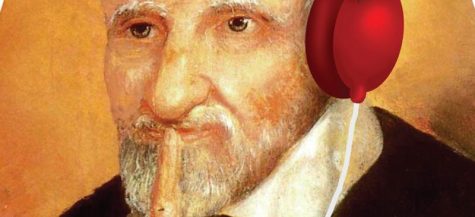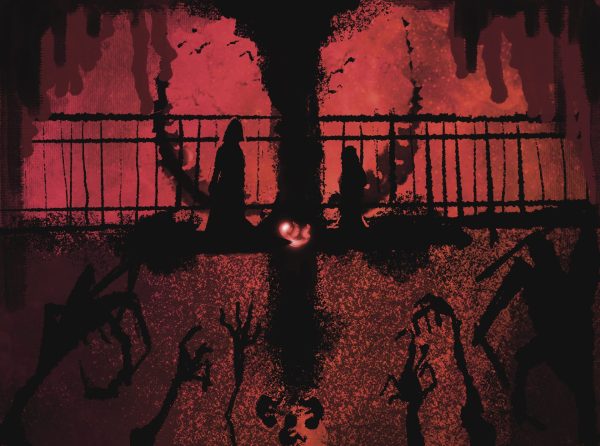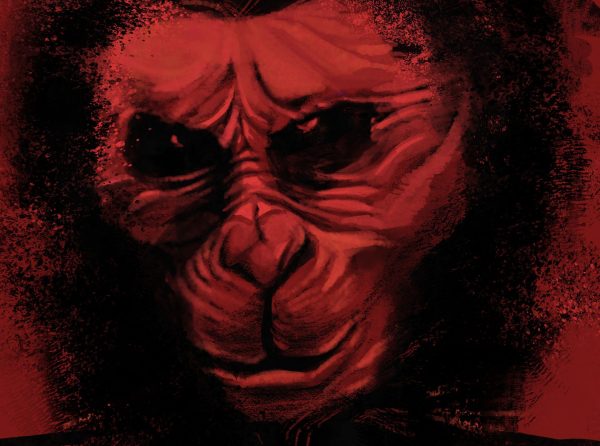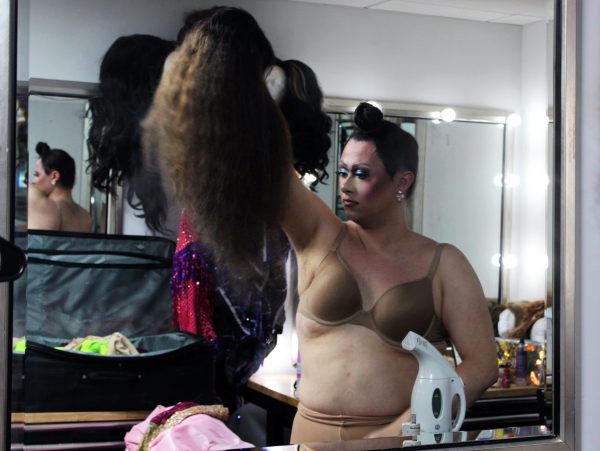REVIEW: ‘The Last Dance’ remains engrossing in latest episodes
“The Last Dance.”
“The Last Dance” continues strong, with further emphasis on Jordan’s fame, which may have led to his leaving the game for good.
Episodes three and four are focused on Dennis Rodman and Phil Jackson, respectively. Rodman was considered the wild man whose defense and rebounding rounded out Jordan and Pippen’s scoring and leadership. Rodman’s life was the subject of a previous 30 for 30, titled “Rodman.” That documentary is more dense and emotionally resonant, as many of his famous escapades are merely brushed over in “The Last Dance.”
We see Rodman’s crazy antics on the court, ruffling players feathers to get inside their heads. We see his crazy hair and his constant partying, but we don’t get enough of the emotional vulnerability and sadness at the core of Rodman’s persona. His own documentary examines him with much more breadth and sensitivity. Rodman was crucial to the success of the Bulls in the late 90s, but here, he seems like an afterthought compared to the rest of the team’s major players, including coach Jackson.
Things become more interesting in Jackson’s episode, which chronicles his brief but impactful career as a player for the Knicks and his eventual rise through the coaching ranks. Jackson was different from his contemporaries – a bit of a maverick. His style differed greatly from other coaches in the league during that era. He was very spiritual, and often used narratives to define each season. He was also of Native American ancestry, and often employed Native American philosophies and even Zen Buddhism within the structure of his teams.
Despite his spiritually, he was still a mover and shaker. He took the place of Doug Collins, whom Jordan admired, while he was still an assistant with the team. He brought with him the triangle offense, developed by Tex Watson, and the rest is history. Much like Jordan and Pippen, the series is unafraid to cast an unflattering light on Jackson. You can’t argue with his results, but Jackson’s tactics in acquiring the head coaching position were aggressive at best, and a bit shady at worst.
Episodes five and six is where the doc series begins to take off again, diving into Jordan’s political history, or lack thereof, and his public persona.
Jordan is known for his lack of political engagement as a player, which rubbed certain people the wrong way. His most controversial moment came in 1990, when he refused to publicly endorse Harvey Gantt, the African American mayor of Charlotte, who ran a congressional campaign against the controversial Republican incumbent Jesse Helms in North Carolina, Jordan’s home state.
“Republicans buy sneakers, too,” Jordan famously said, a comment he claims to have made in jest among fellow players.
Jordan never wanted to be an activist – he claims this in the series. He was more concerned with basketball and with how a political endorsement could affect sneaker sales, as his quote might suggest. I have to commend director Jason Hehir, once again, for his honesty and transparency in the way he portrayed this narrative. It’s possible Jordan may have been even more controversial today, in a post-Kaepernick world, wherein athletes are expected to be politically conscious. It is important to note, though, that while Jordan refused to publicly endorse Gantt, he did admit to donating to his campaign.
By the time the 1997-98 season rolled around, Jordan was so famous that he was essentially alienated, having only his teammates and his security team to spend time with.
There was a particularly moving moment in which we see Jordan shooting a commercial, stating to the camera “a lot of people have said they’d love to be Michael Jordan for a day, but they don’t understand, it’s no fun.” And then he does another take, and then another. Even in his most vulnerable moments, he had to play it for the camera.
Jordan’s fame was unprecedented, beyond any human prior to and since. His fame derived from his greatness, which was a source of pride. Yet, it was mainly a source of loneliness and isolation – the world expected him to be as perfect as he was on the basketball court, and when he failed to do so, he claims the media turned on him.
This came in the form of a constant barrage of questions in the media regarding Jordan’s persistent gambling. There were questions for years about his gambling, even leading to investigations by the league which ultimately fizzled out.
For Jordan, gambling was about competitiveness, rather than impulse. He may be considered the most ferociously competitive athlete of all time, to the point where he would take offense when compared to other players in the league. A player he is most often compared to, though, was Kobe Bryant, whose inclusion in the series adds a layer of great sadness I wish did not exist.
The most somber moment of the series thus far, though, comes from a posthumous interview from Kobe, who tells of his secret bond with Jordan that began after they met at the 1998 All Star Game. Their comparisons as players and as teammates have made them linked in the history of the game for all time. Kobe’s untimely, tragic death earlier this year created an extra layer of sorrow. This episode was dedicated to the late Bryant and rightfully so — his connection with Jordan in his later years makes his inclusion in the series essential. His death makes his inclusion all the more poetic.
“The Last Dance” continues to amaze me, and despite some hiccups in the third episode, has kept me on the edge of my seat with each viewing. The intrigue, the gameplay, the personalities, the ego – they all add up to an engrossing and unforgettable sports documentary series. There are four episodes still to come and I’m as eagerly awaiting the next ones as I was the first.


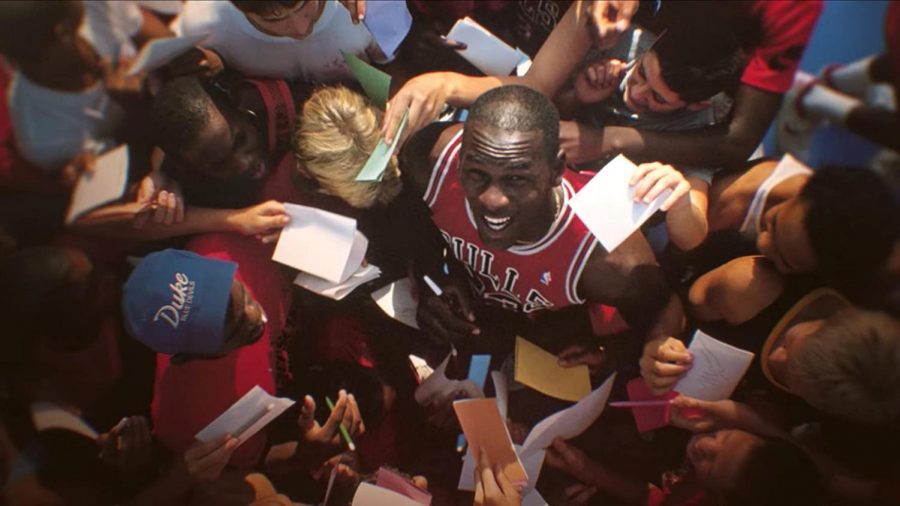


![DePaul sophomore Greta Atilano helps a young Pretty Cool Ice Cream customer pick out an ice cream flavor on Friday, April 19, 2024. Its the perfect job for a college student,” Atilano said. “I started working here my freshman year. I always try to work for small businesses [and] putting back into the community. Of course, interacting with kids is a lot of fun too.](https://depauliaonline.com/wp-content/uploads/2024/04/ONLINE_1-IceCream-600x400.jpg)
